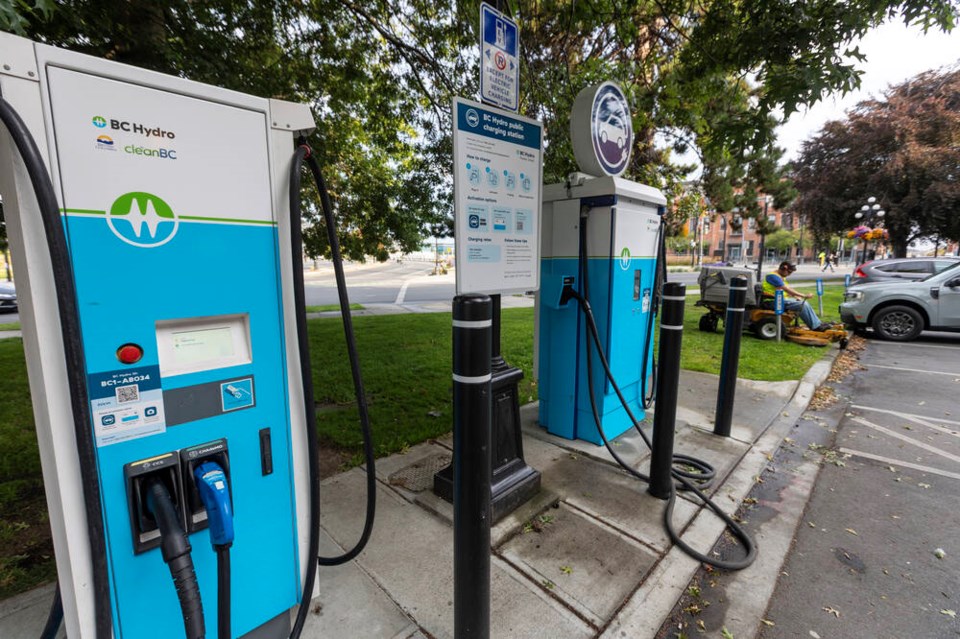Top Stories
Victoria Urged to Intensify CO2 Cuts to Meet 2030 Targets

URGENT UPDATE: Victoria must accelerate its efforts to reduce greenhouse gas emissions to achieve its 2030 target. Officials revealed that the city needs to cut an additional 11,000 tonnes of CO2 over the next five years, which translates to an average of 3,000 tonnes more per year than the current reduction rate.
During a council meeting on Thursday, Laura Berndt, the city’s energy and climate action manager, confirmed that the target is “definitely within reach.” However, immediate action is necessary as the city grapples with its largest emitter, the Crystal Pool, set to close in late 2026 or early 2027. This facility accounts for over 40% of the city’s emissions from buildings, contributing to 20% of total corporate emissions.
Since 2007, Victoria has successfully reduced emissions by 31%, but the community emitted a staggering 287,000 tonnes of CO2 in 2023, a figure that must be significantly lowered to meet the ambitious goals.
Berndt highlighted that the city has initiated numerous actions, including increasing public electric vehicle charging stations to over 200 and adding 32 new electric vehicles to the fleet, one of which is the city’s first electric fire engine. The move to electrify municipal operations aims to minimize emissions and prepare for upcoming challenges.
In addition to these efforts, only about 300 homes in Victoria still rely on oil for heating as more residences transition to heat pumps and electric systems. The city has also implemented strict building codes to ensure that new constructions adhere to the lowest emissions standards.
Councillor Dave Thompson commended the community’s progress but insisted that a robust climate adaptation plan is essential for achieving the targets. He noted that more than just tree planting is required to ensure long-term resilience against climate change.
As the city prepares for a council update this fall on the climate leadership plan, Berndt cautioned that external factors could jeopardize progress. She pointed to potential shifts in provincial policies, including the cancellation of the carbon tax and a review of Clean B.C., which could derail local initiatives.
“The progress to date has been hard-won,” Berndt stated. “It reflects years of planning, investment, and community engagement. This report serves as a reminder of what’s at stake and a call to keep moving forward.”
With the clock ticking towards the 2030 deadline, Victoria faces mounting pressure to ensure that its climate commitments are met. The community’s future depends on decisive action and collective determination.
-

 Politics4 weeks ago
Politics4 weeks agoSecwepemc First Nation Seeks Aboriginal Title Over Kamloops Area
-

 World5 months ago
World5 months agoScientists Unearth Ancient Antarctic Ice to Unlock Climate Secrets
-

 Entertainment5 months ago
Entertainment5 months agoTrump and McCormick to Announce $70 Billion Energy Investments
-

 Science5 months ago
Science5 months agoFour Astronauts Return to Earth After International Space Station Mission
-

 Lifestyle5 months ago
Lifestyle5 months agoTransLink Launches Food Truck Program to Boost Revenue in Vancouver
-

 Technology3 months ago
Technology3 months agoApple Notes Enhances Functionality with Markdown Support in macOS 26
-

 Lifestyle3 months ago
Lifestyle3 months agoManitoba’s Burger Champion Shines Again Amid Dining Innovations
-

 Top Stories2 months ago
Top Stories2 months agoUrgent Update: Fatal Crash on Highway 99 Claims Life of Pitt Meadows Man
-

 Politics4 months ago
Politics4 months agoUkrainian Tennis Star Elina Svitolina Faces Death Threats Online
-

 Sports5 months ago
Sports5 months agoSearch Underway for Missing Hunter Amid Hokkaido Bear Emergency
-

 Politics5 months ago
Politics5 months agoCarney Engages First Nations Leaders at Development Law Summit
-

 Technology5 months ago
Technology5 months agoFrosthaven Launches Early Access on July 31, 2025





















